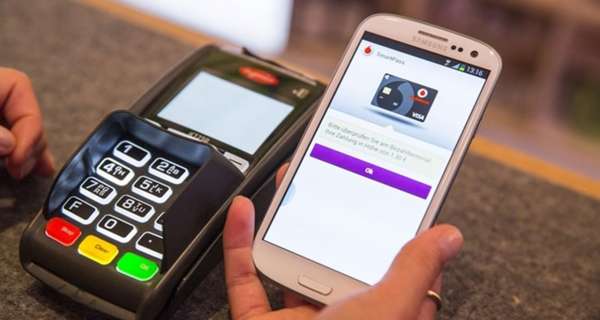• No respite from apps, USSD platforms as failure reaches peak after N100b investment
• Concerns as hackers wipe N2.9b from fintech firm
• Attack raises concerns over safety of digital-first banks
• Telecoms operators absolve selves of banking crises
• NIBSS keeps mum on rate of ePayment transaction failures
• Experts task financial institutions on secure ePayment space
Amid huge financial turnover recorded in the first three quarters of 2022 by banks in the country and claims of N100 billion investment in electronic channels, digital banking has remained very challenging for many Nigerians in the last few weeks since the introduction of the new cash policy.
The events of the last six weeks, where access to cash has remained increasingly limited, compounded by inability of the Automated Teller Machines (ATMs) to dispense cash and spiral failures of Point of Sales (PoS) machines as well as prolonged downtime in Internet banking, have reiterated the need for aggressive investments in the ePayment space of the banking sector.
Indeed, in 2022, the financial statements of some 10 banks revealed that in the first nine months, they recorded N900.92 billion Profit Before Tax (PBT) despite a slow economic performance in the nation. The N900.92 billion was a 21.40 per cent increase from the N742.95 billion PBT recorded in the same period of 2021.
While the banks smiled as profits continue to rise astronomically, Nigerians have in the last six weeks borne the brunt of negligence on the part of the banks and the regulator, Central Bank of Nigeria (CBN).
Amid this crisis, the Association of Corporate Affairs Managers of Banks (ACAMB) had, in a statement on the naira redesign, revealed that from Internet banking to mobile apps, ATMs, PoS merchants, mobile wallets, Unstructured Supplementary Service Data (USSD) codes, agents and digital franchises, among others, no less than 80 per cent of Nigerians now enjoy one form of digital or cashless transaction or another, powered by investments of over N100 billion by banks.”
ACAMB, in the statement by its President, Rasheed Bolarinwa, noted that these commitments by Deposit Money Banks (DMBs) have seen Nigeria rising steadily and recognised as having arguably Africa’s most advanced digital financial services industry and one of the world’s top 10 real-time payment markets.
Despite ACAMB’s claims, the CBN policies were testament that there was no prior stress test on banks’ infrastructure to check their capacity to sustain the cashless policy.
Recall that the drive for digital banking was part of CBN’s cashless policy introduced in 2011. At the onset of the cashless policy, total number of ATMs across Nigerian banks was 10,000, which grew to 17,000 in 2015 and 18,000 in 2017, before reaching 22,500 as of December 2022, according to statistics from CBN.
The number of PoS terminals rose from around 155,000 to 1.1 million as of April 2022, while the number of active banking agents is over 1.9 million, going by data from Shared Agent Network Expansion Facilities (SANEF).
These digital infrastructures have, however, been overstretched by the 45 per cent banked population across the country.
Failure of ATMs to dispense cash, exorbitant charges by PoS agents and inability to get cash over the counter in banking halls, lately, has made Nigerians increase use of USSD and bank apps.
With the hope that USSD platforms would help to reduce the pressure, it turned out to be a nightmare for most users as transactions collapsed.
Efforts to get the views of Nigeria Inter-Bank Settlement System Plc (NIBSS) on the challenges were fruitless as of press time. NIBSS is responsible for the infrastructure that enhances funds transfer. Their specialty is in automated processing, fund transfer instructions and settlement of payments.
Checks showed that some transactions that appeared to have gone through on the platform, which could take as much as 30 minutes to deliver, were later discovered to have failed. “Painfully, the funds were not reversed,” Gbenga Adekunle, who used the *737# platform, said.
The Guardian learnt that a major bank among the new generation ones had to disable its app some days ago to ensure there was no total collapse of the applications and guard against possible hacking. This brought further hardship on the bank’s customers.
Defending the banks, a Chief Information Officer (CIO) in one of the banks, who spoke to The Guardian on the condition of anonymity, said banks should not be blamed for what is happening.
While blaming CBN for the crisis, he said banks have not stopped investing in critical aspects of their operations, especially digital channels and security. “I may not be pointblank about how much has gone into the digital channels for upgrades and others, but it runs into billions of naira.”
According to him, the crises were compounded by shortage of technology-skilled workforce. “The japa crisis has impacted negatively on banking operations. Most of our skilled and tech-savvy guys have resigned and relocated abroad for bigger pay, security and better working environment and condition.
“One of the bank’s branches did not open for three days because the branch manager, head of operations and cash officer left the same month. So, they could not open, and the head office had to intervene. Within the last one year, we have lost about 200 good hands,” he said, adding that most of the bank employees who migrated usually proceed on their yearly leave and from there forward their resignation letters.
While urging banks to be more careful, especially now, to avoid hackers invading their applications, telecoms expert, Kehinde Aluko, said banks should upgrade all their online platforms, USSD and their applications.
“Unfortunately, many bank apps do not have the capacity for the number of transactions we are witnessing at the same time now. Banks must upgrade and quickly be on the alert to forestall against possible cyber-attack. They need a stronger firewall now than ever.”
ACTIVITIES of hackers in the Nigerian digital space may be assuming a scary height following a report that about N2.9 billion was wiped out of an upwardly mobile digital-first bank after its platform was attacked.
The latest attack has sent jitters through the flourishing digital banks, whose subscriptions have spiked following prolonged downtime suffered by conventional banks since the commencement of the cashless economy and currency scarcity.
The hacking of the fintech company has raised fresh concerns about the safety of other digital payment platforms, which millions of Nigerians have taken to for quick transaction settlement.
In the past few weeks, some of the platforms have been called out on social media following the increase in failed transactions, the alleged disappearance of funds from customers’ accounts among other issues.
Whereas conventional banks are known for sluggish customer resolution processes, some digital banks have no physical offices where complaints can be lodged. Some of them have also suddenly become lethargic in attending to complaints filed via digital communication channels.
On the heels of the reported attack, a customer of another payment platform with four failed transactions at the weekend told The Guardian he had been unable to reach the customer service unit to file his complaint.
The Nigerian fintech firm provides a payment infrastructure for global merchants and payment service providers across the continent. It emerged as Africa’s unicorn after reaching a valuation of over $1 billion.
While police investigations are ongoing, the company is seeking to freeze accounts where some of the money were transferred to, it was reported. A motion to freeze accounts in 27 financial institutions in Nigeria has been filed.
The rate of hacking in recent times is evidently on the increase and banks in Nigeria as well as their customers have become pawns in the scheme.
DMBs have been touted as the most common targets and this has become a source of concern to the banking public who are often told they compromised their account credentials when they suffer losses.
Between July and September 2020, banks, according to NIBSS lost N3.5 billion to fraud-related incidents, representing a 534-per cent increase from the same period in 2019, when it was N552 million.
Last week, Kaspersky said seven per cent of Internet users in Nigeria were victims of phishing in 2022. According to Kaspersky, which is an anti-virus provider firm, 8.7 per of its individuals and corporate users were affected by phishing attacks in 2022.
It stated that 31.1 per cent of financial phishing attempts in Nigeria were through websites of fake payment systems, 51.2 per cent through fake online stores and 17.8 per cent through fake online bank portals.
Kaspersky added that it blocked 507,851,735 attempts to access fraudulent content globally in 2022, twice the number of attacks it thwarted in 2021.
In 2022, the Nigerian Communications Commission (NCC) issued 15 security alerts to Nigerians and called for concerted efforts to clip the wings of hackers and other cybercriminals.
Nigerians are currently migrating to cheaper digital-first banks as the call for electronic payment intensifies. Some of the platforms, which are scarcely known, also suffer downtimes similar to those of traditional banks. But Nigerians, especially youth, keep faith in them for reasons ranging from convenience to low transaction costs.
But the older generation is worried their money could be lost at a mere click of a button by a fraudster. They are also afraid that mobile-app-based banking service providers could be hard to bring to justice in the event of failure.
PPC Limited and infrastructure Development Company has called on the banks to strengthen their e-payment platforms.
While speaking on the impact of the redesigned naira notes on banking infrastructure, the Director of Operations and Head of ICT Division at PPC, Dr Patrick Ede, observed that the inadequacy of the epayment channels to withstand the deluge of transactions orchestrated by the surge in the use of such channels for payment is causing many failed and unsuccessful transactions.
He added that the congestion and resultant system downtime are negatively affecting the commercial activities of merchants as transactions have become slow, delayed and sometimes incomplete due to the fact that the banks were never ready for the level of surge they are currently experiencing.
The ICT expert called on banks to implement measures that will ensure all electronic payment channels can process simultaneously, quickly and efficiently.
While absolving Nigeria’s $75 billion telecoms sector of any complicity in the crises confronting the banking sector, the Chairman, Association of Licensed Telecoms Operators of Nigeria (ALTON), Gbenga Adebayo, said telecoms operators largely provide carrier services to the banks.
“What we do is to provide carrier service to the banks, what happens at their backend is not our own business. So, the challenge is not from the telecoms sector.
“It is preposterous to think that all the operators will develop technical issues, which will affect only bank transactions while other activities that do not have to do with banking are going on smoothly, including voice calls, data and multimedia services,” he stated.
ALTON advised the banks to increase their USSD capacity and properly deploy the right facilities for a full-blown digital or online banking.
An economist, Dr Tope Fasua, has urged CBN to ensure optimally functional internet capacities for the cashless policy to be effective. According to him, cashless policy and financial inclusion are gradual processes that require time for the banks to improve their capacity.
“There is no country in the world where everybody is financially included; and there is no country that is totally cashless. It is a matter of effort and gradual progress. People should be allowed to embrace cashless by themselves, not by punishment, ” he said.
Fasua said what Nigerians had experienced in the last few weeks, with scarcity of cash due to the CBN’s naira redesign policy, would further alienate them from the policy.
“Personally, I have been trying an online bank transaction for the past two hours, I have tried for more than 200 times without success. This is because the platforms of the banks have been choked up, and they do not have capacity for the kind of uptick they are experiencing, ” he said.
He, however, said that the apex bank had recorded some achievements with the naira redesign policy as many more Nigerians had keyed into cashlessness.



































0 Comments